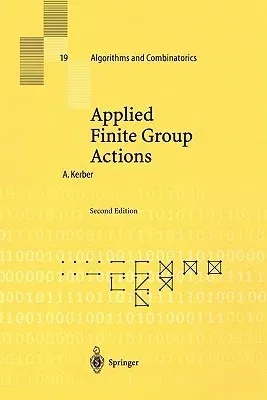Also the present second edition of this book is an introduction to the
theory of clas- sification, enumeration, construction and generation of
finite unlabeled structures in mathematics and sciences. Since the
publication of the first edition in 1991 the constructive theory of un-
labeled finite structures has made remarkable progress. For example, the
first- designs with moderate parameters were constructed, in Bayreuth,
by the end of 1994 ([9]). The crucial steps were - the prescription of
a suitable group of automorphisms, i. e. a stabilizer, and the
corresponding use of Kramer-Mesner matrices, together with - an
implementation of an improved version of the LLL-algorithm that allowed
to find 0-1-solutions of a system of linear equations with the
Kramer-Mesner matrix as its matrix of coefficients. of matrices of the
The Kramer-Mesner matrices can be considered as submatrices form A" (see
the chapter on group actions on posets, semigroups and lattices). They
are associated with the action of the prescribed group G which is a
permutation group on a set X of points induced on the power set of X.
Hence the discovery of the first 7-designs with small parameters is due
to an application of finite group actions. This method used by A.
Betten, R. Laue, A. Wassermann and the present author is described in a
section that was added to the manuscript of the first edi- tion.


